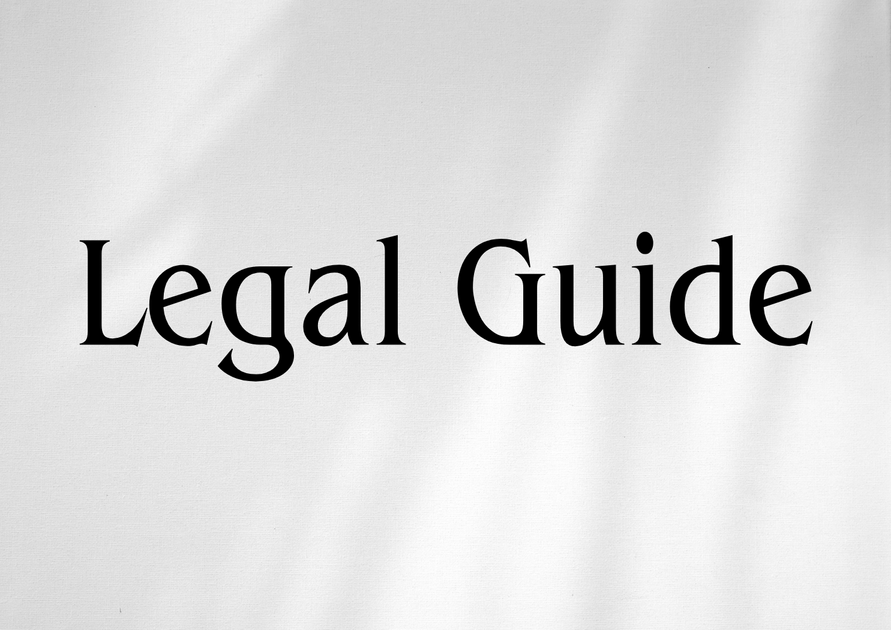Introduction: The Strategic Imperative of Enforcing Commercial Judgments in Saudi Courts
In an era of rapidly expanding economic integration between the United Arab Emirates (UAE) and the Kingdom of Saudi Arabia (KSA), the ability to enforce cross-border commercial judgments has become an operational necessity for UAE businesses. With Saudi Arabia’s Vision 2030 agenda fueling market transformation, UAE entities are increasingly engaged in legal disputes with Saudi counterparts. As of 2025, recent legislative reform in both jurisdictions has redefined the landscape of cross-border enforcement, compelling stakeholders to recalibrate their strategies in light of new compliance protocols, timelines, and legal requirements. Understanding and leveraging the mechanics of enforcing commercial judgments in Saudi courts is no longer an option—it is a critical business capability that directly influences risk, contractual design, and recovery of receivables. This advisory analyses the legal regime governing enforcement of commercial judgments in Saudi Arabia, contextualizes it for UAE businesses, contrasts historic and current frameworks, and provides strategic, practical insights for maximizing enforcement success.
Table of Contents
- Legal Background: The Saudi Enforcement Ecosystem
- Principles of Reciprocity and Bilateral Treaties
- Enforcement Procedure: Step-by-Step Guide
- Recent Legal Developments and Their Impact
- Key Issues, Risks, and Practical Compliance Advice
- Case Study: UAE Company Enforcing Judgment in Saudi Arabia
- Table: Comparing Old and New Enforcement Frameworks
- Compliance Strategies for UAE Businesses
- Conclusion: Adapting to a Changing Enforcement Landscape
Legal Background: The Saudi Enforcement Ecosystem
Statutory Foundations for Judgment Enforcement
Enforcement of commercial judgments in Saudi Arabia is governed primarily by the Saudi Enforcement Law (Royal Decree No. M/53 of 2012 and its subsequent amendments). Within its framework, the Enforcement Rules of Procedure (Council of Ministers Resolution No. 329/2013) specify the practical mechanisms for recognizing and executing foreign judgments. The Saudi Ministry of Justice, through the dedicated Enforcement Courts, acts as the principal authority for supervision, compliance review, and compulsory execution.
Key Principles of Saudi Enforcement Law
- Recognition Threshold: The judgment must meet substantive and procedural requirements, and not contradict Shariah principles or public order.
- Documentation: The judgment creditor must provide officially translated and attested verdicts and supporting documentation.
- No Re-examination of Merits: The Saudi court does not re-examine the substance of the dispute, except to confirm compliance with local law and public policy.
Principles of Reciprocity and Bilateral Treaties
GCC Convention and Bilateral Enforcement Protocols
At the heart of cross-border enforcement between the UAE and Saudi Arabia lies the Gulf Cooperation Council (GCC) Convention for the Execution of Judgments, Delegations and Judicial Notices (Riyadh Convention, 1995). Both states are signatories, thereby providing a treaty-based mechanism for enforcement subject to several key preconditions:
- The judgment must be final and enforceable in the issuing country (UAE).
- There must be no conflicting judgment or earlier litigation between the same parties pending in Saudi Arabia.
- The foreign court must have had competent jurisdiction and proper service of notice must be demonstrated.
- Reciprocity is respected, and the judgment does not conflict with Saudi public order or Shariah law.
Although bilateral diplomatic relations and commercial agreements further reinforce the obligations, in practice, courts exercise due diligence in verifying treaty compliance. For example, the execution of a UAE Federal Court judgment in Riyadh requires submission under the Riyadh Convention, including evidence of non-appeal and proof that both countries provide reciprocal enforcement.
Enforcement Procedure: Step-by-Step Guide
Practical Roadmap to Judgment Enforcement
The process of enforcing a commercial judgment from the UAE in Saudi courts is detailed and involves critical procedural steps. Below is a step-by-step guide, with recommendations for UAE businesses considering enforcement efforts:
- Obtaining an Enforceable UAE Judgment: The judgment must be final, non-appealable, and certified by the UAE Ministry of Justice or relevant court.
- Legalization and Translation: Legalize (notarize) the judgment through the UAE Ministry of Foreign Affairs, UAE Embassy in Saudi Arabia, and Saudi Ministry of Foreign Affairs. Official Arabic translation is mandatory.
- Collate Supporting Documents: Include court order, evidence of due process (writs, notices), and a certificate confirming no appeal is pending.
- File Enforcement Application: Submit the complete dossier to the competent Saudi Enforcement Court (via the Ministry of Justice e-portal, Najiz.sa), specifying the amount and nature of the claim.
- Preliminary Judicial Review: The court examines compliance with procedural obligations and Shariah/public order criteria.
- Order of Execution: If the judgment passes review, the court issues an execution order against the Saudi debtor’s assets.
- Challenge Period: The debtor has a statutory window to object (usually 7-30 days depending on circumstances) on narrowly defined grounds.
- Enforcement Actions: Seizure, freezing of bank accounts, asset auction, or other compulsory measures are implemented.
Recommendation: Engage local Saudi counsel familiar with procedural formalities and ensure documentation is comprehensive to minimize delays.
Process Flow Diagram
Visual suggestion: Inclusion of a process flow diagram illustrating the above stepwise enforcement pathway in Saudi courts for UAE judgments.
Recent Legal Developments and Their Impact
Legislative Updates and the Changing Compliance Landscape
The enforcement of foreign (including UAE) commercial judgments in Saudi Arabia saw significant procedural modernization with the 2018 Executive Regulations Amending the Saudi Enforcement Law, and ongoing digitalization mandates by the Saudi Ministry of Justice. Key impacts as of 2025 include:
- Digital Applications: Electronic submission of enforcement requests is now mandatory, streamlining filings but requiring careful electronic documentation.
- Shortened Deadlines: New timelines for creditor and debtor responses have accelerated the process, increasing the need for rapid compliance.
- Expanded Asset Recovery: Broader authority granted to enforcement judges to identify and seize diverse assets, including securities and intellectual property.
- Stricter Scrutiny of Documentation: Courts have heightened their review of foreign documentation legitimacy and public order compatibility, often requesting additional confirmations or explanations.
Simplified Table: Key Recent Changes
| Aspect | Pre-2018 Regime | Post-2018/2025 Regime |
|---|---|---|
| Filing Method | Paper-based, manual filing | Digital e-portal (Najiz.sa) |
| Deadlines | Longer, flexible timelines for responses | Strict, shortened statutory deadlines |
| Asset Forms | Primarily tangible assets (real estate, cash) | Expanded to securities, IP, digital assets |
| Review Intensity | Basic document checks | Detailed authenticity/translation scrutiny |
Visual suggestion: Replace or accompany with a Gantt chart showing reduced average enforcement timeframes since 2018.
Key Issues, Risks, and Practical Compliance Advice
Major Obstacles in Practice
- Public Order & Shariah Compatibility: Saudi enforcement courts will deny execution if the substance of the judgment contradicts fundamental Shariah principles (e.g., contractual interest).
- Judgment Formality Gaps: Failure to legalize, notarize, or properly translate documents can result in dismissal or significant delays.
- Proof of Reciprocity: There are occasional requirements on UAE parties to demonstrate, via affidavits or legal opinions, that Saudi judgments are enforceable in the UAE.
- Parallel Proceedings: If a lawsuit concerning the same matter is pending or decided in Saudi courts, enforcement may be summarily rejected.
Consultancy Guidance for Risk Mitigation
- Draft Smart Contracts: Avoid contractual terms likely to conflict with Saudi public policy (such as usurious interest or penalty clauses) where the other party’s primary assets are in KSA.
- Anticipate Procedural Bottlenecks: Prearrange documentation legalization and identify in-country process agents to facilitate submissions.
- Audit Enforcement Eligibility: Prior to litigation, conduct a legal feasibility check on whether the contemplated claim is likely to be considered for enforcement in Saudi courts.
- Monitor Regulatory Updates: Stay informed of Ministry of Justice circulars and amendments impacting procedural or substantive requirements.
Case Study: UAE Company Enforcing Judgment in Saudi Arabia
Scenario Overview
Background: A UAE-based construction consortium secures a final, non-appealable judgment from the Abu Dhabi Commercial Court, awarding damages against a Saudi development client for breach of contract.
Enforcement Steps
- The UAE judgment is certified and legalized, then officially translated into Arabic.
- The documents are submitted to the Riyadh Enforcement Court via the Najiz e-portal, accompanied by proof of fulfilled due process.
- The Court examines the claim for compatibility with Saudi public order and Shariah law—specifically reviewing any late payment interest for compliance.
- Upon satisfactory compliance, the Saudi Enforcement Judge issues an execution order, freezing the debtor’s bank accounts and placing liens on real property assets.
- The debtor files a challenge, alleging that certain award elements (such as compounded interest) are void under Shariah. The court partially upholds, stripping out the offending interest but executing the remainder.
Lessons and Insights
- Early legal review of the likely enforceability of award elements is crucial.
- Efficiency strongly depends on procedural compliance and local representation.
- Partial enforcement (with exclusion of conflicting terms) is common and requires business preparedness for reduced recoveries.
Table: Comparing Old and New Enforcement Frameworks
| Criterion | Pre-2018 Enforcement | 2025 Enforcement Regime |
|---|---|---|
| Submission Channels | Physical courts, lengthy queues | E-portal, streamlined digital process |
| Public Order Review | Case-by-case, inconsistent | Centralized, more predictable guidelines |
| Timelines for Completion | 6-18 months common | 3-8 months achievable |
| Scope of Enforcement | Limited to tangible assets | Allows digital, IP, security token seizures |
| Probable Pitfalls | Poor coordination, lost documents | Systematic tracking, status notifications |
Compliance Strategies for UAE Businesses
Compliance Checklist
| Step | Best Practice |
|---|---|
| Legal Audit | Assess enforceability of any judgment clauses at contract negotiation |
| Document Prep | Obtain certified translations and legalizations in anticipation of disputes |
| Local Counsel | Appoint experienced Saudi enforcement lawyers pre-emptively |
| Digital Literacy | Train staff on e-portal filings and digital evidence requirements |
| Treaty Watch | Monitor updates to Riyadh Convention and bilateral enforcement arrangements |
Visual suggestion: Inclusion of a compliance checklist infographic to aid UAE business executives.
Special Note on Recent UAE Law 2025 Updates
As of 2025, the UAE Federal Decree-Law No. 42 of 2022 on Civil Procedures, in force and updated through Ministerial Guidelines, expressly affirms the UAE’s commitment to cross-border enforcement. This clarity on reciprocal execution is expected to further facilitate Saudi courts’ willingness to grant enforcement for UAE-origin commercial judgments, provided all procedural and public order requirements are met.
Conclusion: Adapting to a Changing Enforcement Landscape
The evolving Saudi commercial judgment enforcement regime presents both opportunities and challenges for UAE businesses. The combination of legal modernization, digital filing, and enhanced asset recovery tools makes successful enforcement more accessible—yet only to parties who understand and adhere to the intricate requirements governing cross-border legal action. Best practices—including strategic contract drafting, pre-dispute compliance audits, effective use of digital tools, and continuous monitoring of regulatory change—will differentiate businesses that recover their due from those that do not. Proactively managing these risks in alignment with the latest legislative updates will not only secure monetary recovery, but also safeguard future commercial interests as the Middle East’s legal and commercial integration deepens. Organizations are strongly advised to consult with specialized UAE-Saudi legal consultants to remain compliant, competitive, and resilient in a dynamic environment defined by regulatory innovation and cross-jurisdictional collaboration.



